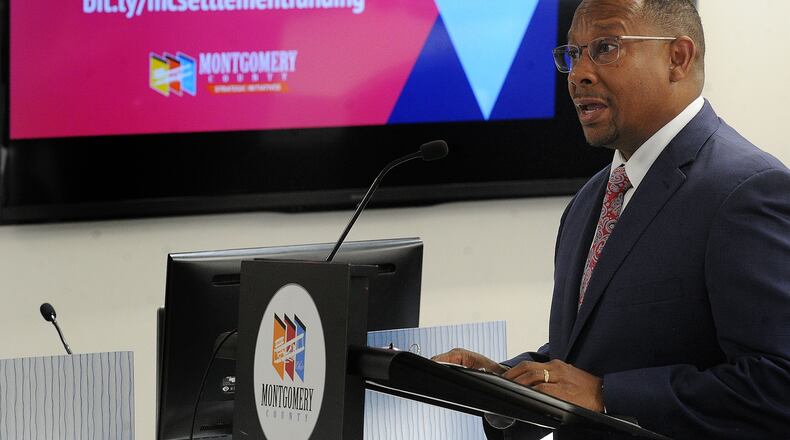The remaining $2 million will be available to nonprofits, said Michael Colbert, the Montgomery County administrator. These nonprofits must be serving primarily Montgomery County and have existed for at least one year.
Program examples include educational initiatives with proven strategies to prevent substance abuse, increased telemedicine and telehealth services, services to increase recovery housing and employment and recovery organizations that help with relapse prevention.
Colbert said the commissioners were clear early on that they wanted to do something for the grassroots organizations that work on the ground with addiction.
“We wanted to place this money in the community with those nonprofits that have been helping with addiction treatment and education,” he said.
The opioid epidemic hit Ohio hard, but particularly Montgomery County. At the peak of the opioid crisis in 2017, the county reported 556 accidental overdose deaths in one year. In 2023, the number was 292.
Since 2016, the Montgomery County Coroner’s Office and the Ohio Department of Health have reported more than 2,770 overdose deaths in Montgomery County.
“These are mothers, fathers, sons, daughters and neighbors who lost their lives to addiction,” said commissioner Judy Dodge. “We know something has to be done to change the tide of drug addiction and accidental overdose.”
Commissioners said the money could enhance prevention, treatment and recovery for existing local initiatives.
“Our goal is to increase the effectiveness of existing local opioid-related initiatives,” said commissioner Debbie Lieberman.
Commissioner Carolyn Rice noted research has shown a link between mental health conditions and addiction. She said the safety net portal was something the Montgomery County Behavioral Task Force, which works with addiction, identified as a need.
Rice said the 100 beds will better serve the inmates who are dealing with addiction. Colbert said the population of the jail has come down since the beginning of the pandemic, and the 100 beds will be a designated space for the many people who come into the jail with drug, alcohol or mental health needs.
“We can’t solve the behavioral health crisis in silos,” Rice said. “We must shed the stigma of addition and work together to make a difference.”
Nonprofits can apply for this one-time funding request online using e-CIMpact. Organizations must include a project description, budget and key measures in the application. Applications close on April 30.
About the Author

